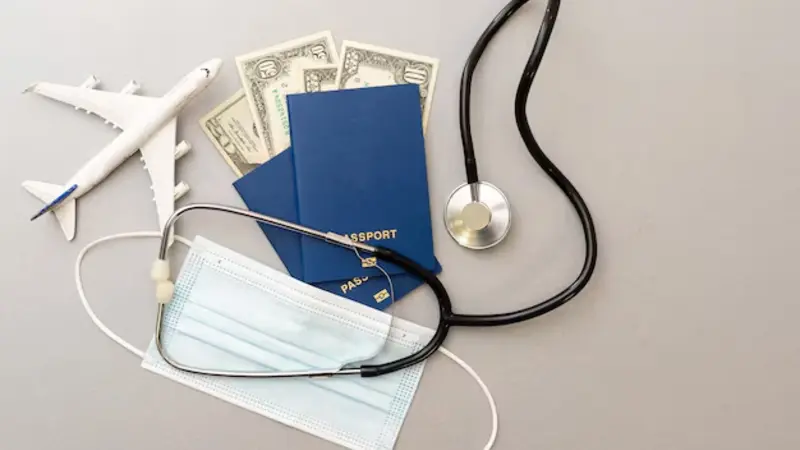Key Takeaways
Various highly coordinated processes are involved.
- Kenneth helps get insurance, stay within budget, and select the service provider who is the best option suitable for the treatment of the patient’s medical condition.
But how about insurance, the cost, the choice of coverage, and the company? Please explain.
Table of Contents
- Understanding Medical Repatriation
- How Medical Repatriation Works
- The Process of Medical Coordination
- Financial Considerations: Does Insurance cover it?
- Selecting the Right Medical Repatriation Service
- The Human Side: Real-Life Stories
- Benefits and Challenges of Medical Repatriation
- Future Trends in Medical Repatriation
Understanding Medical Repatriation
Medical repatriation is the ordered service of transporting patients back home when they become sick or injured in another country. For such critical moments, International Medical Repatriation Providers are indispensable. We are acquainted with the possibility of medical so we can be ready for any abrupt situation or have a secure path for specific medical treatments. We are the easy answer for your global medical needs. Our responsibility is to give you fast and easy solutions during the most hard moments.
How Medical Repatriation Works
The process starts when a patient is checked by qualified medical professionals; they find out the condition, the necessity for repatriation, and the kind of care the patient needs during transit. Initially, the evaluation is done, and then logistics start which is ensuring a safe and timely journey (often this is the help of air ambulances or common passenger planes with medical equipment on board). The whole operation needs to have the experienced staff, the right documentation, and the international health protocols to be strictly followed.
The Process of Medical Coordination
Successful accomplishment of medical coordination in the process includes the collaboration of healthcare providers, transportation services, and also international regulatory bodies that guarantee the safety of patients and regulation of health guidelines. The process refers to the medical records synthesis, staff’s presence during the moving, and sometimes organizing in-flight medical care. For an elaborate understanding of the norms and the guidelines involved, one could refer to WHO’s Health System Governance – the document provides the necessary resources that guide health systems in the world.
Financial Considerations: Does Insurance cover it?
The high cost of this healthcare service is one of the most weighty issues related to the medical repatriation that can be achieved, depending on the severity of the condition and the distance of travel. Nevertheless, it is important to remember that travel insurance usually includes repatriation services, but the details of different plans may differ a lot. Finding out the terms and conditions of travel insurance is vital before the beginning of your trip. The most common problems travelers run into with travel insurance are the coverage limits, pre-existing conditions, and the geographical area the policy covers as an emergency abroad may not be easy to explain to the insurance agent if you are not well informed.
Selecting the Right Medical Repatriation Service
The main goal of selecting a practiced medical repatriation service provider is to offer this kind of service effectively and humanely. People who would like to become potential service providers should study the past actions of the expert, his/her qualification level, and the clients’ opinions. It is the client’s responsibility to make sure that the chosen provider has dealt with similar cases before and that his/her services are comprehensive.
Financial Considerations: Does Insurance cover it?
The high cost of this healthcare service is one of the most weighty issues related to the medical repatriation that can be achieved, depending on the severity of the condition and the distance of travel. Nevertheless, it is important to remember that travel insurance usually includes repatriation services, but the details of different plans may differ a lot. Finding out the terms and conditions of travel insurance is vital before the beginning of your trip.
Selecting the Right Medical Repatriation Service
The main goal of selecting a practiced medical service provider is to offer this kind of service effectively and humanely. People who would like to become potential service providers should study the past actions of the expert, his/her qualification level, and the clients’ opinions. It is the client’s responsibility to make sure that the chosen provider has dealt with similar cases before and that his/her services are comprehensive.
Medical Repatriation in the Future: Future Trends
Looking into the future, advancements in technology will dramatically alter the field of medical repatriation. Developments like telemedicine allow experts to provide remote assistance, whereas the improvement of medical logistics guarantees not only the safety of patients but also the efficiency of travel. Furthermore, the use of advanced communication tools can be a game-changer, making the whole process of coordination much easier and faster for clients to use. As the travel industry keeps on changing, the methods and tools to make the repatriation of patients receiving aid secure will also continue evolving.
Contact Us For More Information.

